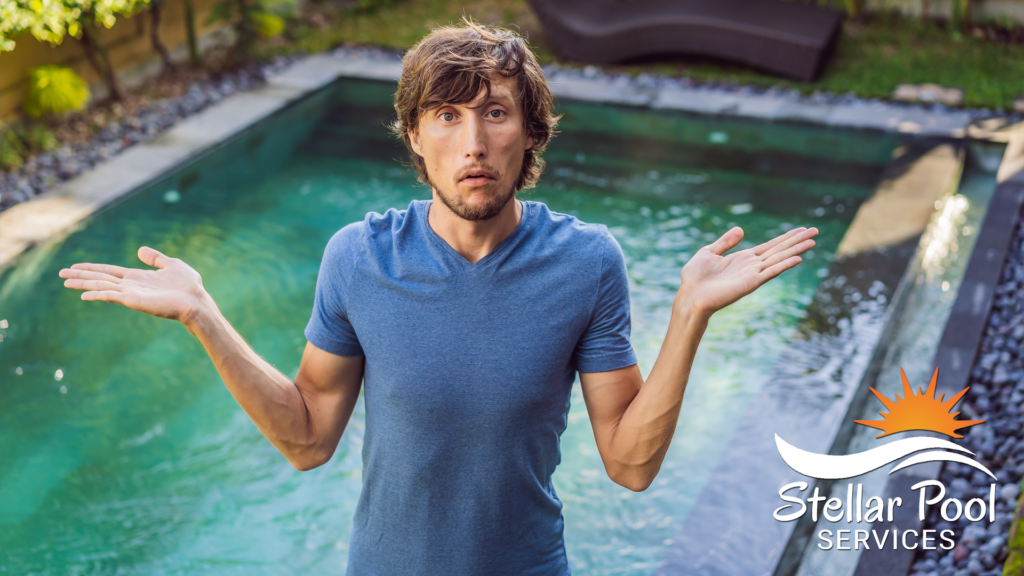
Your pool is a relaxing oasis for you to enjoy with family and friends. But, to keep it clean and inviting, you must know some pool chemistry basics. Let’s take a look at some of the chemicals that go into maintaining your pool and what they do to keep your pool safe and clean.
Do I Need Chemicals for My Pool?
It’s not enough to vacuum and skim the pool every day. Think of the things that come into the swimming pool naturally. Bugs, bird droppings, small animals, skin, hair, and suntan lotion from swimmers will find their way into the pool water. All of these things will cause bacteria to grow without chemical treatment. A murky pool full of algae is no fun for anyone. Taking preventive measures with pool chemicals will prevent having to do significant remediation later.
How Do Pool Chemicals Work Together?
It may seem like a lot of chemicals to put into the pool water, but they are actually needed to help each other work. You need to use a sanitizer to keep the water clean. But, for the sanitizer to work, you must ensure that pH, calcium hardness, and alkalinity are balanced. You’ll need other chemical remedies to treat the pool for algae, to keep the water clear, and to prevent buildup from hard water stains. So, these chemicals work together to keep the water crystal clear and inviting.
All About Chlorine in Your Swimming Pool
Chlorine is the most common sanitizer used for swimming pools, mainly due to its effectiveness, and lower cost. It will kill algae, viruses, and bacteria. You will find two types of chlorine, granules and tablets that are used with a floating dispenser. Tablets are easier and faster to use and give you a more consistent result throughout the pool. The most effective way to chlorinate the pool is to use an automatic chlorinator.
Make sure that you use stabilized chlorine in your pool, especially if it is an outdoor pool. This prevents the chlorine from being burned off by the sun and ensures that it stays in the water. You must take care not to over-chlorinate your swimming pool. The proper level of chlorine is three parts per million. If you put too much chlorine in the pool, you’ll need to add a chlorine neutralizer.
Maintaining Correct pH in Your Pool
For chlorine to do its job effectively, you must maintain the correct pH levels in your swimming pool. You’ll need to have two additional chemicals to get the job done, pH increaser and pH decreaser. The ideal level for pH in your pool is between 7.4 and 7.6. Keeping your levels in this range will allow the chlorine to work effectively.
What Role Does Alkalinity Play in Your Pool?
Always keep a supply of alkalinity increaser on hand. This chemical acts as a buffer, preventing pH from bouncing up and down the scale. Adjusting the pH and alkalinity in your pool can be tricky, so use caution and consult with a pool service if you’re not sure how to improve alkalinity levels.
Shocking Your Swimming Pool
“Shocking” your pool is done by super chlorinating it. It’s important to shock your swimming pool at night so the sun doesn’t burn the chemicals off with its UV rays. Shocking helps to keep the water clean and take care of problems like pool algae, or bodily fluids (or solids) released in the pool. You should shock the pool once a week at least.
Other Pool Chemicals
Other pool chemicals are used for specific applications and can be recommended by your local pool service, but we’ve covered the basic chemicals here.
If all this sounds like a part-time (or full-time) job to you, Stellar Pools is here to simplify your life and cut down on the work you need to do yourself to keep your pool a sparkling oasis. Contact Stellar Pools today and let us come out and test your pool water. Happy Swimming!